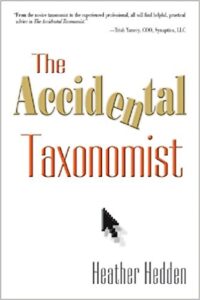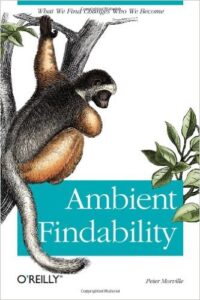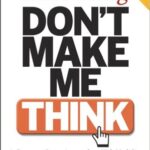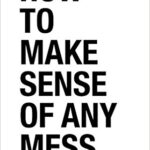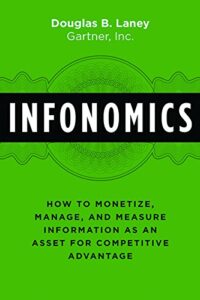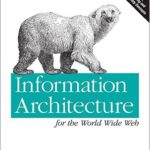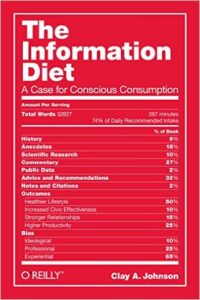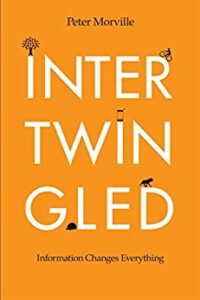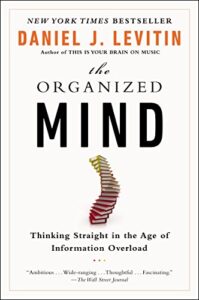Information Architecture

The Accidental Taxonomist
There are dozens of things that I do each day that I didn’t set out to do. I do accounting and billing work without a desire or intent to do it. I do sales and marketing – and neither are at the top of my list of things to do. I accidentally picked the...
The Age of Overwhelm: Strategies for the Long Haul
Few, I think, would argue against the idea that we’re in the age of overwhelm. The amount of information that we encounter daily is overwhelming. The rate of change is overwhelming. That’s what makes The Age of Overwhelm: Strategies for the Long H...
Ambient Findability
There have been times when I saw down with a topic and I just couldn’t get the words and the ideas to align. There were other times when the idea was so powerful that the words seemed insufficient. This is the case with Ambient Findability . Peter Mo...
Don’t Make Me Think
As someone who gets engaged by clients to help them work through their problems, you wouldn’t expect I’d like a book titled Don’t Make Me Think , but it’s perhaps the most accessible book on web usability that I’ve run into. In fact, I’d recommend it...
The Elements of User Experience
Where does Information Architecture begin and end? It’s a question that I’ve been struggling with. There are so many impacts into user experience, visual design, navigation, etc. I tend to think of Information Architecture as the overall framework or ...
How Buildings Learn: What Happens After They’re Built
I’m not an architect, but as an information architect, I’m curious about how classical architects approach the problems of buildings that people love. This journey led me to Stewart Brand’s book, How Buildings Learn: What Happens After They’re Built ....
How to Make Sense of Any Mess
When I explain my passion for information architecture to folks, they often wonder what I’m talking about. They understand intuitively that I’m not talking about designing buildings, but how can you design information? A better way of explaining information arc...
Infonomics: How to Monetize, Manage, and Measure Information as an Asset for Competitive Advantage
Most of the time, we pay no attention to the wind that’s blowing past us. Whether it’s a cool breeze or a warm draft of air rising from the pavement, we’re so used to air movement around us that we rarely consider its implications until we encounter a tor...
Information Architecture: Blueprints for the Web
There’s one statement that is definite truth, there’s no mystery in how Information Architecture: Blueprints for the Web approaches IA. It’s all about the web – and why shouldn’t be. If we’re accessing information today we’re likely doing it via th...
Information Architecture for the World Wide Web: Designing Large-Scale Web Sites
Sometimes the obvious isn’t obvious. The “Polar Bear” book is a classic work for Information Architecture. Information Architecture for the World Wide Web: Designing Large-Scale Web Sites by Peter Morville and Louis Rosenfeld was written in 2006 b...
The Information Diet: A Case for Conscious Consumption
Most of the time when I read a book that I have problems with – or that I don’t like most of it – I simply don’t write a review of it. I generally think that there’s little value in telling people what not to buy – it’s a habit I picked up from my da...
Information Governance: Concepts, Strategies and Best Practices
Unlike most of my reviews, I should start with a small disclaimer. Robert Smallwood, the primary author, reached out to me over a year ago and asked if I’d consider helping him with some SharePoint and Office 365 content in his Information Governance: Co...
Intertwingled: Information Changes Everything
It might seem odd that one of the forefathers of information architecture would proclaim that everything is intertwingled and thus hard to force down into specific categories, but that’s what Peter Morville is saying. You can’t separate the parts fro...
The Organized Mind: Thinking Straight in the Age of Information Overload – Facebook Friends
In the first part of the review of The Organized Mind: Thinking Straight in the Age of Information Overload , I addressed the direct impact of information overload (it’s here ). However, there were many lose ends in the book as it pertains to relationships and...
The Organized Mind: Thinking Straight in the Age of Information Overload – Information Overload
There’s a sort of irony in the fact that the first thing I have to say about the book The Organized Mind: Thinking Straight in the Age of Information Overload is that it seems unorganized. To be fair, I think that whenever you’re bringing together multi...
Pervasive Information Architecture: Designing Cross-Channel User Experiences
I view Information Architecture (IA) as the organization of information around you. I picked up Pervasive Information Architecture: Designing Cross-Channel User Experiences because I wanted to see how others thought about the problem of keeping messages c...

